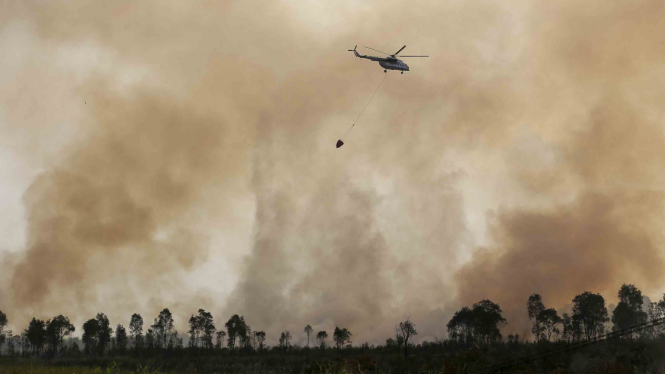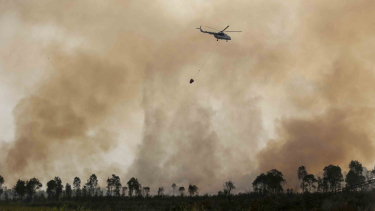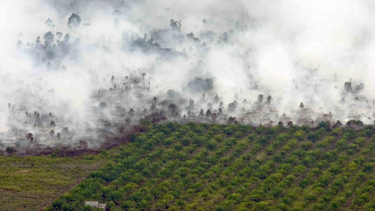Massive Wildfires Hit Portugal Leading to Over 1,000 People Evacuated
- ANTARA FOTO/Nova Wahyudi
VIVA – Hundreds of firefighters on Tuesday battled a massive fire in southern Portugal that has scorched thousands of hectares of land and forced the government to take the precaution of evacuating around 1,400 people.
The blaze, which is currently being tackled by more than 1,100 firefighters, started on Saturday in the municipality of Odemira, in the Alentejo region, but has spread south to the Algarve, one of Portugal's top tourist destinations.
High temperatures and strong winds hampered efforts to extinguish the fire, which scorched around 6,700 hectares of land. Shortly before sunset on Monday, the sky in Odemira darkened as huge plumes of smoke filled the sky.
Odemira Mayor Helder Guerreiro declared that the situation was "critical, difficult and complex", while Civil Protection commander Jose Ribeiro pointed out the huge job of controlling the forest fires ahead.
Ilustrasi ancaman Kebakaran Lahan dan Hutan.
- ANTARA FOTO/FB Anggoro
A total of 19 small villages, four tourist accommodations, and a campsite have been evacuated as a precaution. Several roads were closed, authorities said.
Countries in southern Europe, such as Portugal, faced record-breaking temperatures during the peak summer tourist season, prompting authorities to warn of health risks.
Scientists say heatwaves are becoming more frequent, stronger, and spreading throughout the season, due to climate change.
Portugal's weather agency, IPMA, on Monday, declared six districts in the country, including the capital Lisbon, on red alert for extreme heat until midnight.
Authorities have announced that more than 120 municipalities across Portugal are at high risk of forest fires.
"The weather conditions that will be felt in the next few days, mean that small incidents (fires), can become bigger," the state secretary of Civil Protection, Patricia Gaspar, told a press conference.
Three districts in northern Portugal were on red alert on Tuesday when temperatures were expected to reach 41 degrees Celsius in the town of Castelo Branco in northern Portugal.



























